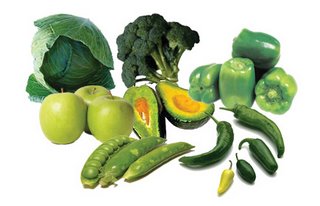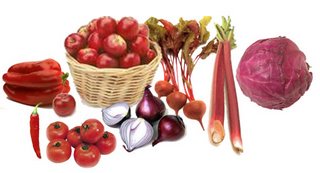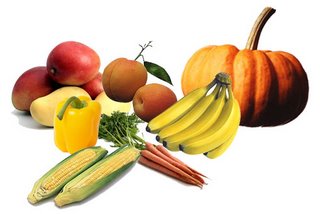
Do you ever find yourself tongue. tied? Blushing scarlet whenever someone looks at you? Or stammering over the simplest of replies? If the answer's yes, then you're probably shy. No doubt you think you're the only person who suffers from it . . . but you're not!
Jackie is 19, and up until a few months ago, suffered from acute shyness.
From the earliest I can remember I've always been shy. I'm an only child which could have something to do with it.
When I was a lot younger, before I started school, Mum, Dad and I lived in a flat in the middle of Birmingham. Because we were in a busy part of town, my mum didn't let me go out to play unless she was there to watch me. Really, I don't suppose I had much contact with other children until school.
The first day I went to school, all the kids were crying because they didn't want their mums to go away and leave them. I was crying, too, but I remember feeling terrified! Our teacher was really nice and kind, and the first few days just consisted of getting to know our classmates.
Everyone was in the same boat then hardly anyone already knew each other, but I couldn't bring myself to speak to anyone - at the tender age of five, too!
Eventually I did make friends. I had three close mates Susan, Samantha and Lynne.
I suppose I did OK at primary school, but I didn't like the teachers singling me out for anything. Eventually I think they gave up with me, and let me muddle along on my own. When I think about it now, that's probably the worst thing that could've happened.
When I went on to secondary school, Lynne and Samantha both went away to other schools, and all of a sudden I found I was supposed to grasp algebra, geometry, French, English and a dozen other subjects as well really different from primary school.
I managed quite well on the whole, but algebra completely lost me. I was off the first week we really started doing it seriously, and although I did get a copy of the notes we'd been given, I just couldn't understand it. For about a month I listened and paid attention to my teachers, but I just couldn't make head nor tail of it, I eventually slipped pretty far down the class. I couldn't bear everyone to think I was stupid because I didn't understand it, and I was too shy to ask the teacher for help.
When I left school, I had no idea what I wanted to do. I think being shy really held me back at school, and I didn't know where to start looking for a job. My careers officer suggested I might enjoy working with children, because 1 was renowned for being so patient, but in the end I decided to make the most of the Secretarial Studies I did and applied for a job in a local solicitors - they needed a typist.
The day of my interview was one of the worst days of my life. I was so nervous I couldn't sleep for about a week. I considered not going along, but all that would mean was that I was on the dole for the rest of my life.
Amazingly, although I was dead nervous, I got the job. I think really, that was the turning point. At school, I'd had a couple of friends, but all of a sudden I had to work with three other typists and two secretaries, as well as four solicitors. And there were always other people coming and going, too.
The first few weeks I gradually came out of my shell. The girls were really inquisitive about me because I was new. Did I have a boyfriend? Where did I go at the weekend? The first couple of days I had a permanent blush on my face because I was the centre of attention. I was asked more questions in that week than in the rest of my life put together!
Gradually I've become more confident. In the last two months, I've been out every weekend with the girls from here, and they've brought their pals along, too.
I'm still a bit shy when I meet someone new, but nowhere near as bad as I was - at least I can speak to them, now!
One of the be things about my new-found confident happened last weekend.
We were at a disco and a boy I fancie came over and asked me to dance. I dance with him a couple of times, and he walked me home at the end of the night. I'm not going say we were like long lost friends, but we chatted fine and we're going to the picture tomorrow night.
If he'd asked me to dance eight months ago, I'd have been in the toilets, face scarlet and shaking like a leaf!
So you see, curing shyness really is a case of mind over matter. You won't change overnight, and you need other people to help you.
In the meantime, until you are more confident, here are a few tips to help you cope a bit better ...
If you're shy because you're self-conscious (perhaps of spots) putting your hand up to try and cover them will only draw attention to them.
* If your voice rises because you're shy, try taking deep breaths to calm yourself down. Breathe from the bottom of your ribs, and your voice will be back to normal. If you're short of breath, your voice will go squeaky.
* If you're prone to blushing, just thinking about it will make you blush more. But blushing is natural.
* If you're going to a job interview, work out what to say before you go.
* When you meet people for the first time, shake hands and look them in the eye. Try to remember their names, too.
* When you're standing, try not to look at your feet, move from one foot or gaze into space.
* If you're making a phone call that you're nervous about, jot down a list of things you want to say. That'll avoid any awkward silences and you won't forget anything, either.
* If you don't understand what someone is talking about, perhaps at work, then ask. You'll just end up completely lost otherwise.
* If you walk into a room full of people, it's only natural that they'll look at you - thye're not staring because you're a freak. You'll have done it in the past yourself.
* What do you do when you're feeling shy? Bite your lip? Bite your nails? Fiddle with your hair? Play with your rings? Whatever it is, it's a bad habit, so stop it and you should feel much more confident.
* Finally, shyness is usually something that will eventually go. You'll have to overcome it though. Just remember, it's natural to have butterflies when you go for an interview, and you can be sure that 99% of the population are reduced to a blush and stutter when the person of their dreams finally speaks to them!































